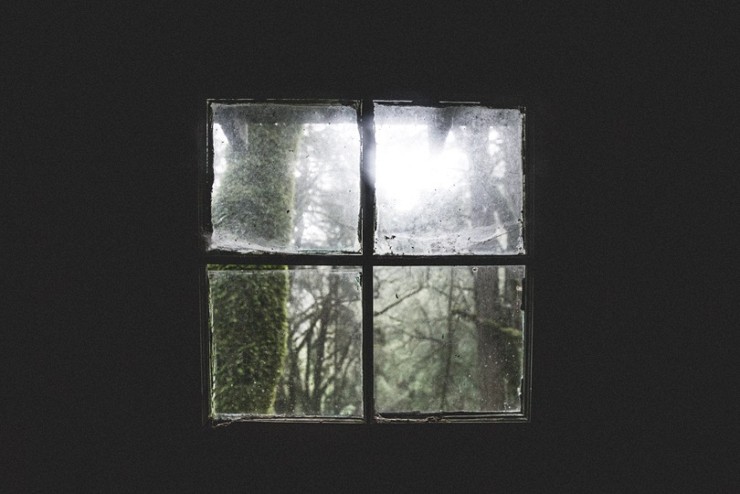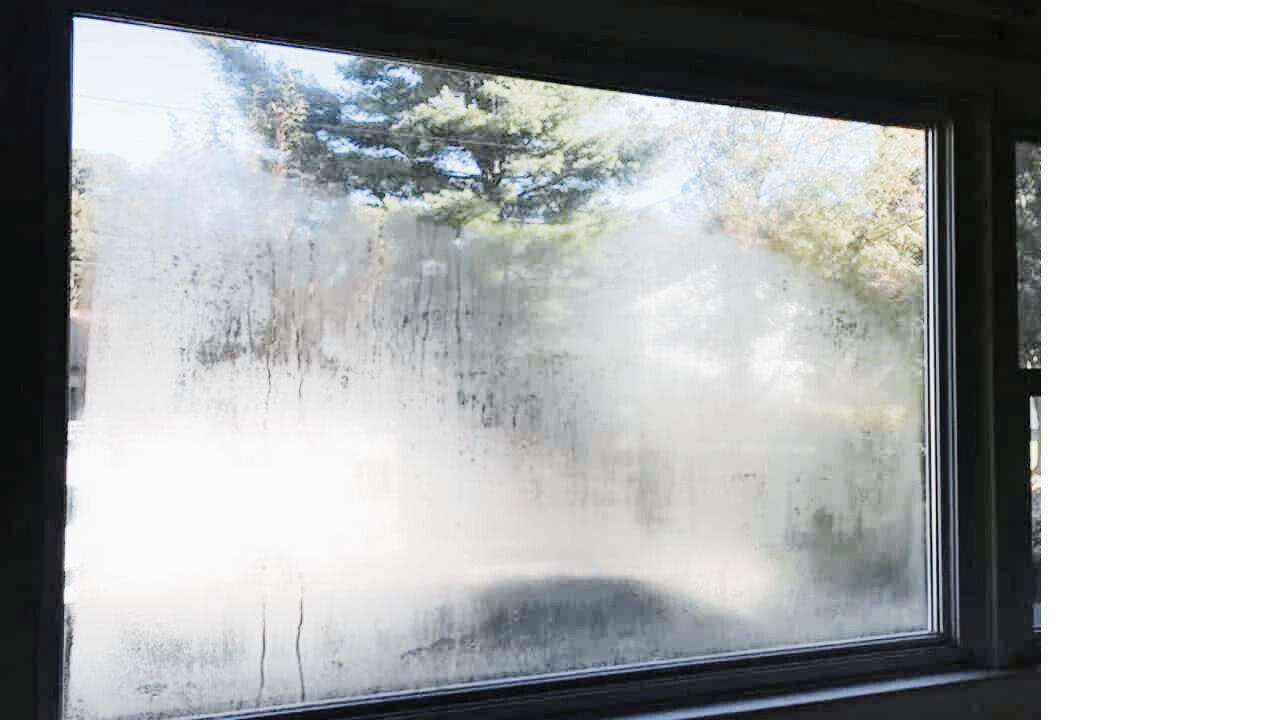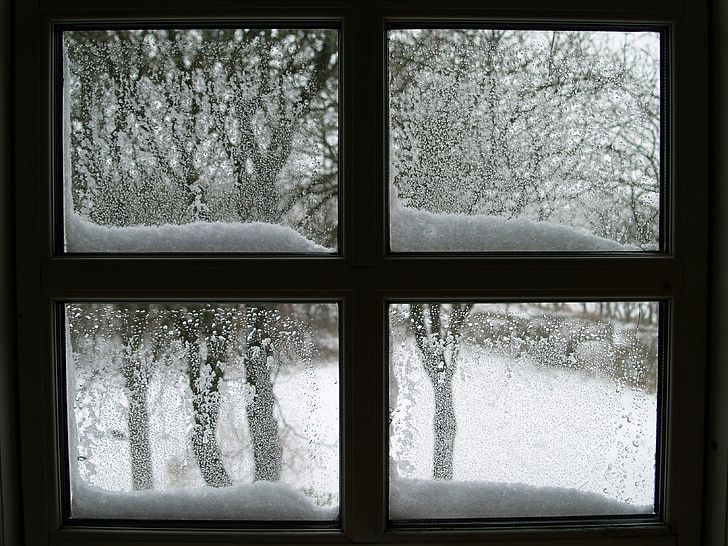How Aging Windows Impact Your Home's Energy Performance

Blasting the heat in winter only to feel a chill, or cranking the AC in summer only to get lukewarm air? Drafty windows could be the culprit behind jeopardizing your comfort!
Here in Toronto, where the climate swings wildly between bone-chilling winters and scorching summers, energy-efficient windows are more than just an upgrade – they're a necessity.
But what happens when your trusty windows start to show their age? The truth is, as windows age, they can become less effective at keeping the elements at bay.
Let’s explore the hidden costs of aging windows and how they can negatively affect your Toronto home. We'll also shed light on energy-efficient solutions for your comfort.
What Happens to Windows Over Time?
Just like anything else that endures Toronto's harsh climate, windows aren't immune to wear and tear.
Over time, they can experience a number of issues that compromise their performance and functionality.
Here are some of the most common problems you might encounter with aging windows:
Seal Failure:
The seals between the window panes are designed to create a barrier against air and moisture. Unfortunately, these seals can wear down and crack over time.
It allows unwanted air and moisture to infiltrate your home. This can lead to drafts, foggy windows, and even condensation buildup on the inside of the panes.

Weatherstripping Deterioration:
Weatherstripping is the material that creates a tight seal around the edge of the window sash where it meets the frame.
Exposure to sunlight and extreme temperatures can cause weatherstripping to become brittle and lose its effectiveness.
The deterioration leads to air leaks which are similar to seal failure. It ultimately reduces energy efficiency and contributes to drafts.
Frame Warping:
As we’ve mentioned earlier, Toronto's dramatic temperature swings can take a toll on your window frames. Over time, constant expansion and contraction causes frames to warp or crack.
Warped frames compromise the window's ability to create a proper seal, leading to the same issues as seal failure and weatherstripping deterioration.
Hardware Breakdown:
The hardware on your windows, such as locks, cranks, and hinges, can also succumb to the effects of time.
Exposure to the elements can cause rust and corrosion, making it difficult to open, close, or lock your windows properly.
This not only reduces functionality but can also compromise your home's security. All these problems contribute to the overall decline in performance of your windows.
They become less effective at insulating your home and leads to higher energy bills. Plus, malfunctioning hardware makes your windows less secure and more susceptible to break-ins.
Energy Loss Through Aging Windows
Lets say your windows are a thermal blanket for your home. New, high-quality windows do a fantastic job of keeping you warm in the winter and cool in the summer.
But as windows age, the seals around the panes break down, weatherstripping becomes brittle, and frames warp.
These are like minor issues, but they create gaps and cracks. It essentially turns your once cozy blanket into a leaky sieve for your home's energy.
Winter Woes:
In the winter, that warm air you've so carefully paid to heat escapes through these gaps. Drafty windows are responsible for up to 30% of a home's total heat loss.
Think about it – that's a significant chunk of your energy bill going towards compensating for inefficient windows!
Your furnace is forced to work overtime to maintain a comfortable temperature. As you’ve guessed, it leads to higher energy bills and wasted energy.

Summer Struggles:
The story doesn't change much in the summer. Instead of warm air escaping, hot air from outside infiltrates your home through those same gaps.
Your air conditioner then has to work double-time to keep things cool. Again it drives up your energy bills and reduces comfort.
The result? Higher energy bills all year-round and a home environment that's less comfortable in both hot and cold weather.
Upgrade to Delco energy-efficient windows to seal these leaks and restore your home's energy efficiency. It will lower bills and make your home a comfortable living space.\
How Aging Windows Affect Energy Bills
We all know that windows play a crucial role in our home's energy efficiency. Older windows can be a silent drain on your energy bills.
Here's why:
Loss of Insulation:
Modern windows are designed with double or even triple panes of glass. They are often filled with inert gas like argon, to create a barrier against heat transfer.
These layers create a barrier that slows the transfer of heat, keeping your home cooler in summer and warmer in winter.
Over time, the seals around these panes can break down. It allows those insulating gases to escape.
Single-pane windows are common in older homes, lacking this insulation. This easily lets the heat escape in winter and hot air to enter in summer.
Air Leaks:
Even small gaps around aging windows can create air leaks. As windows age, the frames can warp and the seals around the edges can deteriorate.
It creates gaps that allow conditioned air to leak out and unconditioned air to seep in. So, your HVAC system needs to work overtime to compensate.
This constant battle to maintain temperature puts a strain on your HVAC system and increases your energy consumption.
Drafty Rooms:
Aged and leaky windows can create drafts, making some rooms feel colder in winter and hotter in summer.
Drafts not only make your home less comfortable but also force your HVAC system to work harder to compensate, driving up energy costs.
Reduced Solar Heat Gain (Winter):
In colder climates, well-designed windows can actually help you save on heating costs. Modern windows with low-emissivity (Low-E) coatings allow sunlight to pass through.
Thus, your home gets warm naturally. However, older windows may lack this coating or have inefficient glazing.
It means less heat gain from the sun and a greater reliance on your furnace. The more your furnace works, the more energy consumption.
Aging Windows and Airflow Issues
As windows age, they can develop several issues that can negatively impact airflow in your home. Here's how:
Sticking Sashes:
Over time, window sashes (the frames that hold the glass panes) can warp, swell, or become painted shut. This makes it difficult to open the windows fully, and hinders proper ventilation.
Worn Seals:
Seals around the windowpanes can deteriorate with age, losing their elasticity and ability to create a tight seal. So, drafts of hot or cold air enter your home.
Damaged Hardware:
Window hardware like cranks, latches, and locks can wear out. Therefore, you can’t open or close windows properly. This again limits your ability to control airflow.
Gaps and Leaks:
Aged windows frames can shrink slightly, and create small gaps around the edges. Gaps can also form where the window meets the wall. All these gaps allow uncontrolled air leakage.
Dealing with Moisture Issues
Broken seals around the windowpane allow moisture from the inside of your home to meet the cooler outdoor air, and cause condensation.
It creates a breeding ground for mold, which can spread through walls and ceilings if left unchecked. Mold remediation is expensive and time-consuming.
The Decline in Window Functionality
Over time, windows can become difficult to open and close due to sticking mechanisms, rusty hardware, or warped frames.
This not only reduces ventilation options but also hinders your ability to quickly exit the house in case of an emergency.
Furthermore, windows that don't close properly pose a security risk. It makes your home more vulnerable to break-ins.
So, What’s the Solution?
The one and only solution is replacing old windows with energy-efficient ones. Replacing windows with energy-efficient options offer multiple benefits. Such as:
- Lower Energy Bills: Better insulation and fewer air leaks can save you money on heating and cooling.
- Improved Comfort: Maintain a consistent and comfortable indoor temperature all year.
- Less Noise: Modern windows reduce the amount of outside noise that enters your home.
- Better Curb Appeal: New windows can improve the appearance of your home.
If you think your windows are affecting your energy bills or comfort, consider a home energy audit. It will help you find areas to improve and decide if you need window replacement.
Conclusion
Aging windows create a cascade of problems. It all starts from energy loss to higher bills, drafts and moisture issues that can even threaten your home's health.
The good news is, you don't have to settle for this! Invest in high-quality, energy-efficient windows from Delco Windows to transform your Toronto home.
We offer exceptional windows designed specifically for Toronto's climate to keep your home safe and cozy year-round.
Plus, with improved functionality and a sleek aesthetic, your windows will not only enhance your comfort but also add beauty and value to your home.
Don't wait any longer to take control of your home's energy efficiency and comfort. Contact us today for a free consultation and see how our windows can transform your Toronto home.











